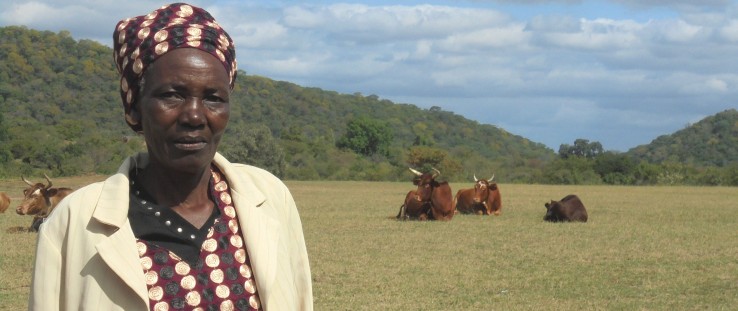 Lina Gudu purchased her cows with proceeds from a village savings and loan group.
Sydney Saungweme
Lina Gudu purchased her cows with proceeds from a village savings and loan group.
Sydney Saungweme
 Lina Gudu purchased her cows with proceeds from a village savings and loan group.
Sydney Saungweme
Lina Gudu purchased her cows with proceeds from a village savings and loan group.
Sydney Saungweme
Life is full of daily challenges in Mahazu in Zaka district, a mountainous, semiarid area located to the southeast of Masvingo province in Zimbabwe. Community members are often forced to choose between spending money to send their children to school or spending money to provide a balanced diet for their families.
For Shuvai Manjemure, like others, providing sufficient and diverse food for her family has been difficult due to repeated drought and poor soil that reduce annual harvests.
Today Manjemure smiles as she works in her garden where she grows high-value, nutritious vegetables like beans, tomatoes and green leafy vegetables as a result of a USAID project that improved irrigation for her community. This irrigated community garden is 1.5 hectares in size (approximately 4 acres) with 60 farmers who have been assigned individual plots. “We have started seeing improvement in terms of food diversity for everyone who is a part of this garden,” says Manjemure.
In 2014, USAID and its partner World Vision started working with over 220 food insecure community members from Mahazu to build and manage a dam and improve irrigation. Every day for five months, they came together and built a 7-meter dam wall across a perennial stream using large stones that they transported by hand to the work site. It was strenuous labor, but their hard work paid off. They completed the dam in time to catch the first November rains and irrigate gardens for 60 farmers.
The dam has meant the difference between growing enough vegetables to support a family’s basic needs and growing enough produce for farmers to both eat and sell.
In one three-month cropping season, the 60 farmers increased their income by $10,080. Prior to the project, these farmers had no income from irrigated agriculture and the production of the vegetables they grow now.
“With food security risks such as droughts on the increase, these communities are desperate to find ways to become more resilient in absorbing and adapting to both current and future shocks,” said USAID/Zimbabwe Mission Director Stephanie Funk.
Savings and Loan Groups Change Lives
Mahazu community members have gone a step further to develop village savings and loan groups (VS&L). An average of about 10 community members per group join together in saving on average $20 per person per month for six months, which is then loaned to members at a group-approved interest rate. Each group has put in place administrative systems that track the money that has been saved and loaned.
With no prior access to credit through banks or financial institutions in this remote area, these community members now access loans to buy agricultural inputs like seeds and fertilizers to manage and sustain their gardens.
Some farmers use their income to purchase food for their children or to invest in other income-generating projects, such as raising goats and chickens. Others use their money to build pit latrines to improve sanitation and hygiene for their families and protect their children from diseases.
Since 2014, these community members have collectively saved over $418,000. In the long run, they will likely be less dependent on development assistance.
“This project means women’s empowerment. We are definitely going far,” declares Respina Masarire, a member of one of the loan groups. She borrowed $250 to purchase washing powder in bulk and doubled her income by repackaging the washing powder into smaller units and selling it at retail price, within one month bringing in $412. Now she has diversified into baking bread and pastries and selling them in the community. Masarire is using the additional income to purchase food for her family and pay school fees for her child.
Gosha Zimhatye, another member of a savings and loan group, said he had recently been struggling to produce enough food to feed his family and generate income for basic household needs.
“I jumped at the idea of taking part in a VS&L and this has changed my life. My income improved because the VS&L group I joined also formed an indigenous poultry producer group,” Zimhatye says. “With the proceeds from my VS&L group, I was able to buy maize seed, which I successfully planted in the 2014-15 agricultural season.”
Fortune Tafirenjika is with World Vision.







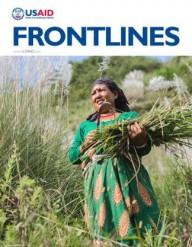


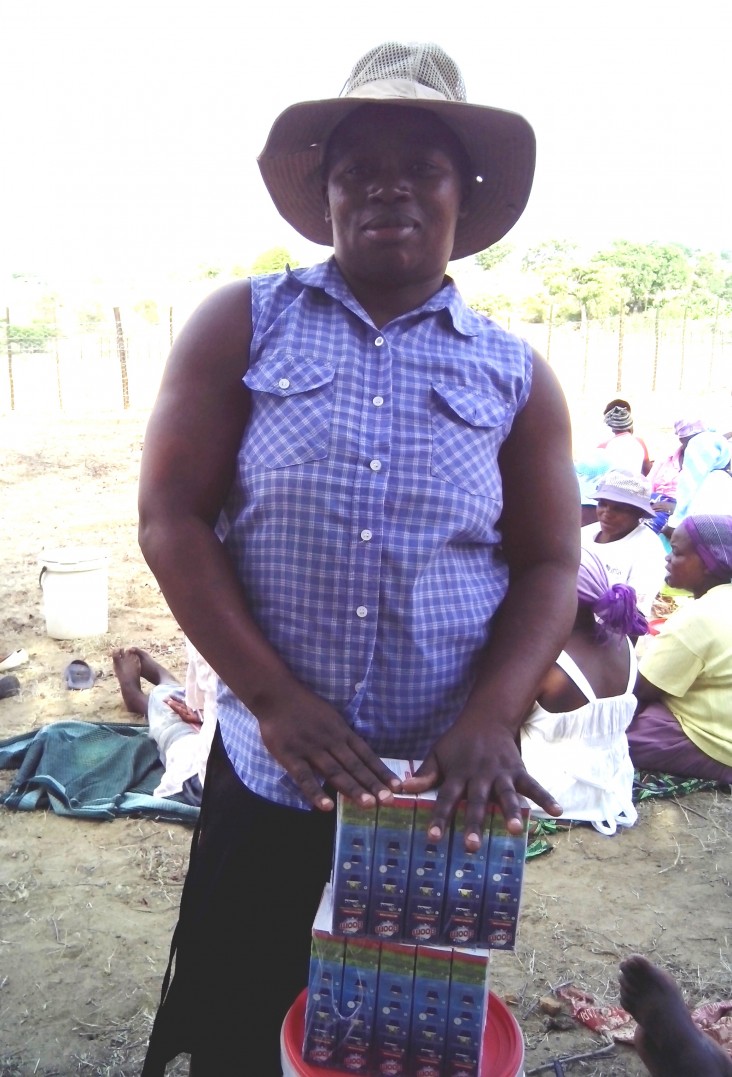
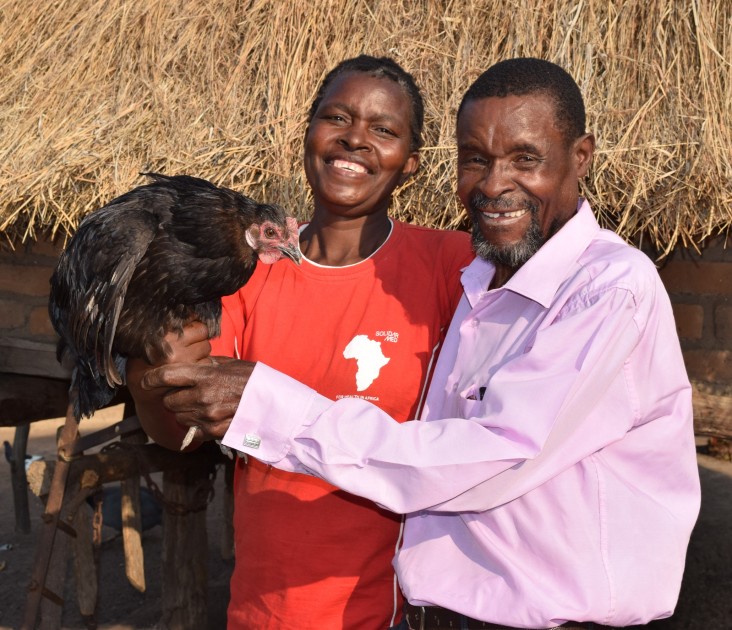
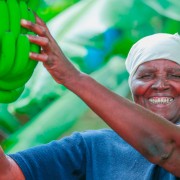
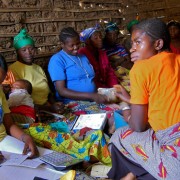
Comment
Make a general inquiry or suggest an improvement.